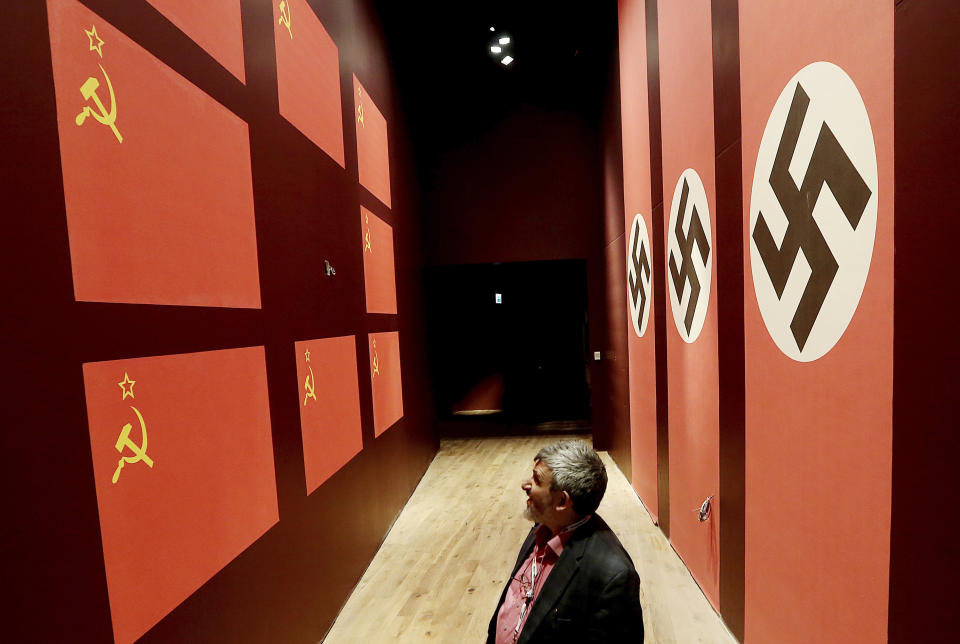Court move extends independence of Polish WWII museum
WARSAW, Poland (AP) — A major new World War II museum in Poland unexpectedly gained at least a few more weeks of independence before it is expected to come under government control, thanks to a last-minute court order on Tuesday.
The Museum of the Second World War in Gdansk is at the center of a standoff between the historians creating it and Poland's populist government, which wants to take control of the museum and change its content to fit its nationalistic worldview.
The two sides have been embroiled in an ongoing and complicated legal battle, and the government was expected to gain control of the institution Wednesday thanks to a court decision last week. But a last-minute decision published Tuesday by a different court blocks that takeover, at least for some weeks.
Director Pawel Machcewicz said the court's latest move should allow him to stay at the helm of the museum long enough to open it to the public by early March. But the government could gain control of the museum in the future, depending on further court proceedings.
He said he and his employees reacted with "joy and euphoria" when they learned of the court's move.
The ruling party opposes the museum because it takes an international approach to telling the story of the war, focusing on the civilian suffering of the many nations caught up in the global conflict. Party leader Jaroslaw Kaczynski has for years criticized the concept and said he prefers a museum that would focus exclusively on Polish suffering and military heroism.
Kaczynski and others in the party feel that it hurts the country's national interest to devote attention to the suffering of other nations when Poland's own unique tragedy is not well enough known in the world.
The museum does devote space to Poland's wartime experience, and Machcewicz argues that putting Poland's experience in the broader international context will make the story much more meaningful to foreign visitors.
There is also a political dimension to the battle. The project was launched in 2008 by then-Prime Minister Donald Tusk, who is now one of the European Union's top leaders. Tusk is a longtime rival of Kaczynski's and many political observers believe that the current government does not want to see their rival's vision come to fruition.
Last year Culture Minister Piotr Glinski tried to take control of the museum by merging it with another museum that has not yet been built, the Museum of Westerplatte and the War of 1939 — a legal maneuver aimed at pushing Machcewicz out.
That sparked months of legal wrangling as Machcewicz resisted the merger.



